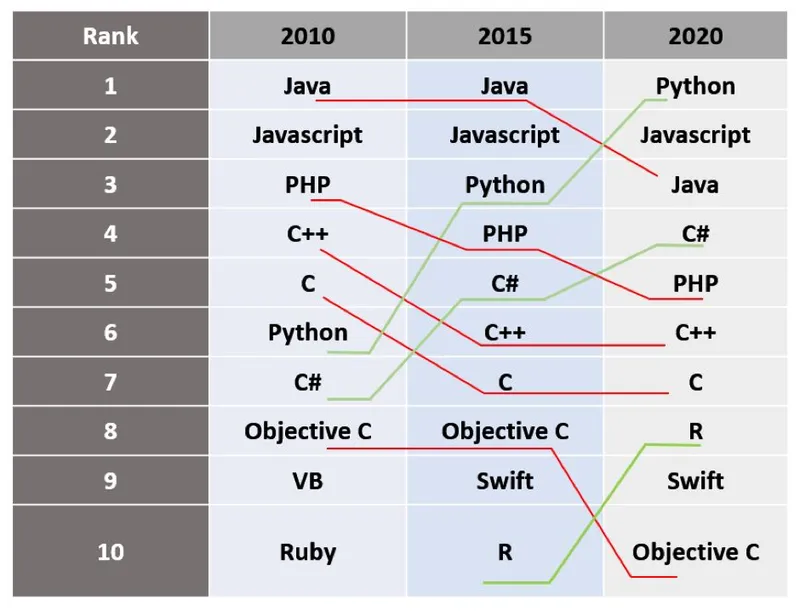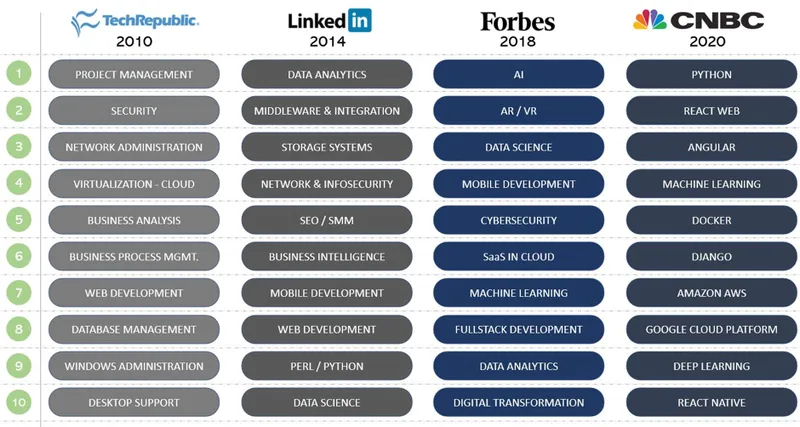IT Jobs - If you are a student for life!
To be successful in the IT sector one needs to be constantly honing one’s skills and keep learning all through one’s career in order to stay relevant and be in demand.
Depending on your skill and the domain, you are either at the start, middle, or end of your next layoff or next big increment.
It was 2009, and as recruiters, we were trying to recover from the shock of GFC. I was meeting a CXO of IBM, who said he wanted to recruit 150 Data engineers. I frowned as I felt we couldn't get that many in India. Cut to 2016. A large Auto R&D company asked me if we could recruit 50 cybersecurity engineers in 45 days at Bangalore. I said the timeline and ask was unrealistic. Just before the pandemic hit us, we were once again talking about the impossibility of hiring 100 AI engineers for a US tech company.
I am sure the irony of the above changing skills in demand is not lost on you.
If you have been an engineer in the tech space over the last decade and have not lost your job even once, you are either very lucky or a fast adapter. However, there is more than luck and skill that plays out in the IT job market.
The job friction
On the one hand, you read that thousands of people got laid off from Cognizant, and every day you hear them hiring in thousands again. This is happening across IT employers in varying degrees. How to make sense of it?
This is a classic case of skills, salary, location and timing mismatch for the talent that is at work here. Tech employers also have the same problem. As a hiring enterprise, the skills they want at the pay and location should match the time they intend to hire.
If you look at any tech company's vacancies, you will always find many roles open. There is never a day when a tech employer can say that we have hired them all. They are either hiring for the present, meaning replacing people who have left or hiring for the future.
Still, if you are an engineer and finding it tough to land a job, let us reflect a little.
ALSO READ

Student for life
At 18, when you took admission as an aspirant engineer, did your professor ever mention that "you are a student for life"? That is a reality for anyone wanting to be an engineer in the technology field today.
The domain you picked, the employer you chose, or the skills you were equipped with are never going to be an insurance for a stable IT career. Many tech publications and industry leaders present hot IT skills almost every year.

Top 10 programming skills as per Simplilearn over the years
Check out the skills put out in the last ten years. With some minor variation in order, most skills tend to remain on the radar, and things don't disappear overnight. So if you are somebody who keeps an eye on what is happening around you, you have enough time to adapt and stay relevant.
Tech domain confusion
When you chase the domains you will see over the last ten years again, it's not simple either.

Top 10 tech domains over the years
The change here is highly visible. Even if you choose a great tech company like Google, Microsoft, or Apple as your employer, your only assured card to success is going to be your skill and domain. Yes, you can also survive by having deep relationships with people, but that is going to be temporary.
The switch
The switch to the skills of tomorrow takes time, and one needs to invest to reap the benefits, and not all bets come off.
There are plenty of engineers who made a switch to data science or cybersecurity midway through their career. Clearly, they saw the trend, invested in courses and projects to master the domain and skills.
One cannot ignore the monetary rewards they reaped due to this shift. Compared to their IT peers with similar experience, these data scientists and cybersecurity specialists earn twice the pay. Though money should not be the right measurement, unfortunately, it is the easiest tangible metric possible. Besides, data scientists and cybersecurity engineers continue to be in demand at a premium.
The pandemic opportunity
Covid-19 costs some of us jobs in the IT sector. However, the last three months have seen green shoots of IT jobs limping back to pre-Covid levels, especially for engineers in the 3-12 years' experience range. With some of the new GICs hiring faster than others on a monthly basis, about 18,000 to 20,000 engineers are getting hired every month even now. But, if you are not in the space of digital skills, the ask to get these open jobs gets even more formidable.
Another reset option this pandemic has provided to the IT engineers is the WFH boon. The time saved in travelling must become the best window of time to become a student for life again.
Even if you did not lose your job during this pandemic, time to pledge that you wouldn't get there next time. Covid-19 has given the time, opportunity to reflect on where we stand on our domain, skills with our current and future employers.
If you were to be a data scientist, cybersecurity expert, full stack developer, or Python specialist during these times, you would only be spending time negotiating offers and considering yourself lucky.
But, for IT engineers, it is essential to remember that luck is what happens when preparation meets opportunity.
(Disclaimer: The views and opinions expressed in this article are those of the author and do not necessarily reflect the views of YourStory.)







